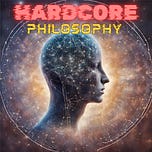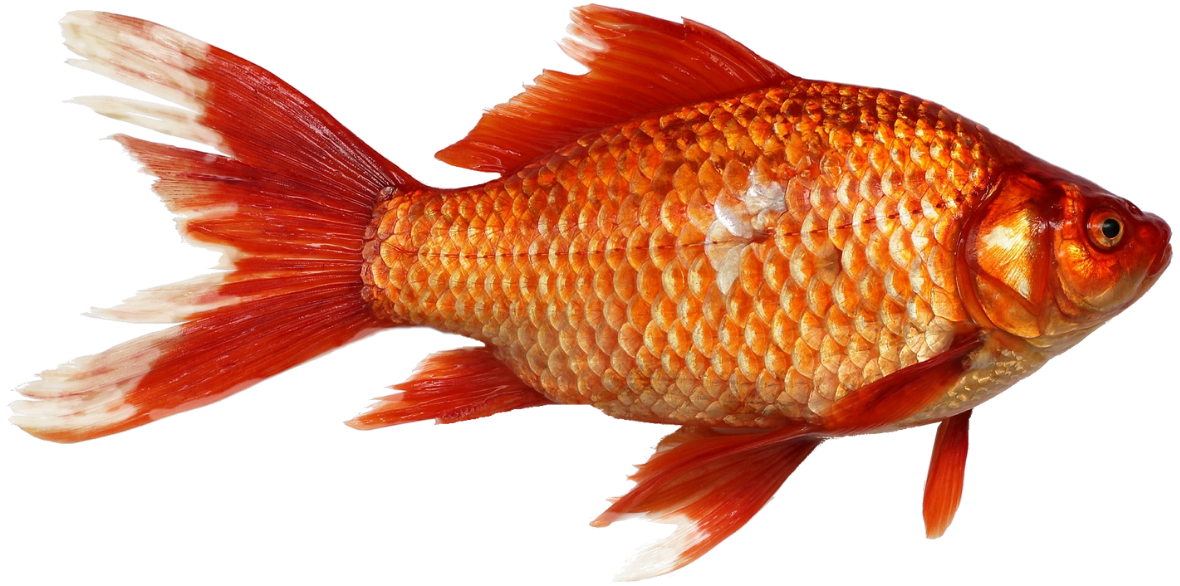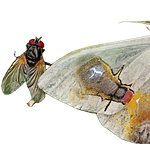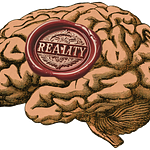Music in this podcast episode comes from the album Spirit Vine Tea, by Nick Herman. Check out his music, support indie artists!
Does reality entail mind-independence, or what Thomas Nagel called ‘the view from nowhere’? If so, what does it mean to have mind-independent knowledge? To what mindless being, then, would this knowledge belong?
SUPPOSE REALITY IS MIND-INDEPENDENT, meaning it exists independently of all minds whatsoever. This isn’t easy to imagine. Rather, it’s impossible to imagine because mind-independence is by definition utterly unknowable. We can’t know the effects of such a reality, or if it has any effects, or if it’s even there. If a mind-independent reality exists, it might as well not exist. Why should we care about it, then?
It’s kind of like trying to imagine that we’re living in a perfect simulation, a truly perfect simulation. The word ‘perfect’ does a lot of work here. There’s no pulling back the curtain, there’s no glitch to be found, nothing to suggest a tear in the fabric of our ordinary lives. This is not The Matrix. If we’re living in a perfect simulation it would be no different from not living in a simulation. So why not just say—we’re not living in a simulation!
David Chalmers discusses such a scenario in his book Reality+, and he seems to disagree with my assessment, at least when he’s arguing against the idealism of Bishop George Berkeley. In the passage below he imagines what Berkeley would say if he were a living within such a simulation:
Sim Berkeley tells us, “Appearance is reality.” Since there is no appearance of a simulation, there is, in actuality, no simulation. Sim Berkeley concludes, “I am not in a simulation. My experiences are all ideas produced by ideas in God’s mind.”
From our perspective, Sim Berkeley looks a bit ridiculous. He says he’s not in a simulation, but he is wrong. He is in a simulation. He says that appearance is reality, but there is a vast realm of reality beyond what appears to him.
—David Chalmers, Reality+: Virtual Worlds and the Problems in Philosophy, Ch 4. Can we prove there is an external world?
The problem is, whose perspective gets to be right? Do you privilege your own and that of minds like it, or that of some hypothetical entity outside the simulation? In the example above, Chalmers prefers the latter. He imagines we get to look down on the scenario like some sort of computer programmer-god who gets the final say. Later, however, when he tries to defend his book’s main thesis, that virtual reality is real reality, he switches gears. Suddenly it’s the limited earthly perspective that gets to be right:
“Are the things I experience in a simulation real flowers, and real books, and real people? My opponent says, ‘No. Even if they’re real digital objects, these objects are at best fake flowers, not real flowers.’ I say, ‘Yes, these objects are real flowers, the books are real books, and the people are real people.’ If I’ve lived my whole life in a simulation, every real flower I experience has been digital all along.
To sum up: if we’re in a perfect, permanent simulation, the objects we perceive are real…”
—Chalmers, Ibid. What is reality?
Now I could say to Sim Chalmers, “From my perspective in the really real world, the notion that digital flowers are real flowers seems a bit ridiculous. You say every real flower is digital, but you are wrong. You are in a simulation. There is a vast realm of reality beyond what appears to you, and quite frankly, the smell of a digital rose does not smell as sweet.” But I won’t say it. ;)1
To be clear, I don’t think Chalmers agrees with me on this, but it’s hard to say what he means. In the passage above he seems to be trying to demonstrate that virtual objects wouldn’t seem artificial if that’s all you know. But if digital flowers are real flowers if that’s all you know, then why wouldn’t a perfect simulation be real reality if that’s all you know? What’s the difference between the two examples? I don’t think there is one. I think the simulation he proposes collapses under its all-encompassing perfection—for us, a perfect simulation can only mean ‘not a simulation’.
Saying we might be living in a perfect simulation is no different than supposing rocks are carrying on secret conversations we'll never get to listen to. Would you take that proposal seriously?
Maybe you would. Or maybe you would object to talking rocks, ‘cause that’s just silly, but you would not object to the idea that we might be living in a perfect simulated reality. But I think the simulation idea is just silly. What makes talking rocks less plausible when we have zero possibility of obtaining evidence in either case?
Still, you might say we should have “Kantian humility” and admit there are things we can’t know. That seems fair enough. I get that impulse, I do.2 But I would like to point out that reality does a pretty fabulous job of limiting what we can know about it. I don’t imagine I’ll convince you by appealing to common sense, but it’s always a good idea to make sure we’re talking about the same thing. I suspect what people mean by mind-independent reality is simply objective reality—reality that’s not influenced by our personal feelings or colored by our biases. On the other hand, if you’re serious about mind-independence, I don’t have a clever response up my sleeve. All I can say is, I don’t see the justification for letting that assumption, however sincere, shape our entire conception of objective reality and how we come to know it. Since we can’t come to know it. Or anything about it—at all.
This is the crux of my challenge to the cherished notion of mind-independence. Let’s have a look at reality as a mind-independent view from nowhere.
“In order to explain the regularities in our appearances (the fact that we see an identical tree day after day, say) we need to postulate some reality that lies beyond these appearances and sustains them.”
—Chalmers, Ibid. Part 2, Can we prove there is an external world?
WHERE DO THINGS GO WHEN I’M NOT LOOKING AT THEM? If I place my cup on the counter and go into the other room where I can no longer see it, I don’t suppose it disappears. But I don’t imagine it living on in some unknowable mind-independent universe, and I don’t think you do either since such a reality would obliterate the cup as we know it.
If you’re a physicalist, and it’s likely many of you are, then you believe something like, ‘there is nothing over and above the physical’, or ‘science is basically right about reality’. Physicalism is not in itself science or even scientific, but a philosophical position about the nature of reality. According to such a view, then, the cup turns into math when no one’s looking at it.
Here’s why: In science it’s taken for granted that a mathematical understanding gives us special insight into objective reality. Physicalists must believe, then, that the objective cup is mathematical and nothing more—given that there is ‘nothing over and above’ the scientific-mathematical understanding of reality. The redness of the cup, the way it feels in the palm and so on, all of that is, according to the scientific view, subjective. The cup’s qualities exist only in our perception and so are not really real. The cup is really real only insofar as it can be understood mathematically. Ergo, when no one is looking at the cup, the cup turns into math.
This is a pretty weird view if you ask me, but it’s not as weird as it gets. I mean, I can sort of think about the cup turning into math if mathematical reality is not mind-independent. (Of course, I’m not mathematically inclined, so there’s that.) But if you say mathematical reality exists in some unknowable realm, I have no idea what that means. I see no reason to assume spatial extension or mathematical computations give us access to a realm beyond all minds; the primary-secondary qualities distinction falls apart like wet tissue in the face of such blind, meaningless objectivity. After all, how do we know objects ‘in themselves’ obey our mathematical-scientific laws? How can we even begin to know our laws reflect reality when we can never access that reality to compare them to? On what grounds do we discount colors and tastes and smells and so on as subjective, but not mathematical thinking? Mind-independence turns out to be a whimsical, useless metaphysical assumption—yet for some reason or other we can’t let go of it!
But how do you account for the success of science if it doesn’t accurately reflect a mind-independent reality? you might object.
My answer: How could an unknown and unknowable reality account for the success of science? It can’t. The success of science makes a lot more sense if reality is not mind-independent.
So what does account for the cup’s persistence when I’m not looking at it? I have no earth-shattering revelations to offer on this front except to say that I believe in the regularity of nature, which seems to do the job just fine. The world doesn’t act all willy nilly. The cup never just goes poof while I’m watching it, so why should it go poof when I leave the room?
I take this continuity to be a kind of fundamental principle, an idea, one that I can’t bring myself to doubt, not seriously anyway. I find it hard to believe the cup turns into math when no one’s looking at it, insane to imagine the cup just disappears, and unthinkable to suppose it becomes a who-knows-what in a mind-independent realm.
Objects must continue as they were even when no one is looking—the idea of mind-independence derives from this, the naive realist’s perspective, and I believe this is what we have been imagining mind-independence to be all along. And yet this notion of mind-independent reality is not the view from nowhere, and it’s not the scientific view either!
I believe the cup stays the same when I’m not looking at it—and it continues existing in the same manner as I experienced it. Everything that does or could happen to the cup while I’m looking at it continues even when I’m not looking at it. In fact, I believe the cup retains the same properties as the cup I experienced even when no one is looking at it. But what a funny thing to say. How can a cup that no one experiences have qualities? Isn’t this what we really think, though? I do. When you put a red cup down on the kitchen counter and leave the room, the cup stays red, does it not? Any notion of object persistence that leaves qualities behind is mere theory and really quite dispensable as far as our intuitions go.
The naive realist makes a mistake not in supposing that objects must persist as they did before, but in supposing that this persistence occurs in a mind-less realm where no one can perceive anything. The naive realist forgets that the object’s persistence is an idea, and that ideas can only exist in minds, most certainly in his mind, and so he goes on imagining the cup as red and warm and filled with delicious coffee getting cooler by the minute, which is to say he imagines it going on just as he perceives it, while “erroneously” concluding that such qualities persist in the absence of anyone perceiving them. Somehow this is not a problem for us, for we are, after all, the naive realist. We are capable of imagining a lot of bizarre things.
The mistaken naive realist’s assumption about mind-independent reality later becomes theory—the abstract ‘view from nowhere’. The view from nowhere leaves behind the naive intuition that the cup retains its qualities, but retains the naive assessment of a mindless reality.
“We are in a sense trying to climb outside of our own minds, an effort that some would regard as insane and that I regard as philosophically fundamental."
—Thomas Nagel, The View from Nowhere, Introduction
HERE’S AN ORIGIN STORY: imagine a primordial past where the sky is blue, the sunshine is warm, the water is refreshing. Reality is given. Everything is as it seems. But then one day while looking at the clouds, we begin to see things that—gasp!—aren’t really real…
Hallucinations, dreams, and illusions—oh my! These seem to challenge our conception of reality. But when we attend to them closely, I think we’ll find the problem is itself illusory.
How do I know I’m not imagining it? This one’s easy; I’m never confused about the scenarios I conjure in my mind because I’m the one making the effort to conjure them. The question as it’s posed is just a figure of speech where ‘hallucinating’ or ‘mistaking’ could be substituted.
How do I know I’m not hallucinating? Hallucination experiences are often preceded by the taking of certain drugs or the onset of certain illnesses, but leaving that aside, they are experienced as having certain unnatural qualities that mark them as hallucinations. What those qualities are like depends on the kind of hallucination.
How do I know I’m not dreaming? Dreams are where the shit hits the fan for naive realism. When I dream, I’m generally not aware that I’m dreaming. Which means if I’m dreaming right now, chances are I won’t know it. Dude! Pass the bong!
Here’s the thing. When I wake up, I know I was dreaming. Waking up reveals the character of the world as coherent and law-abiding and, in retrospect, dreams as some seriously weird shit where your friend turns into your mother or a tornado chases you around inside your house and you don’t bat an eyelash at any of it. It’s funny, we tend to be curiously un-self-reflective while dreaming; for the most part nothing seems suspicious or unreal, no matter how preposterous. That’s a positive difference between dreaming and waking life, and I’m sure dreams have further distinctive qualities about them that are difficult to describe. Regardless of whether we can articulate the difference, though, it’s not hard to tell one from the other in practice. If it were, philosophers wouldn’t be the only ones contemplating these questions; it would be a matter of public concern, and there would be a lot of discussion and hand-wringing over whether we’re dreaming right now. But there’s not.
How do I know reality isn’t just an illusion? Let’s say we see a bent stick in water. Was anyone ever fooled by this old gag? Well, let’s pretend we believe the stick itself is bent. Then, as the story goes, we pull it out of the water and see it’s straight. OMG!!! How could I have been so deceived?! If I could be so wrong about something as dumb as a stick, how can I trust myself to know reality at all? Perception is so unreliable! Nothing is as it seems!
…now we have created a gap between our own perception and reality, so the skeptical problem rearises. How can we know about the reality (whether God or an external world) behind the appearances?
—Chalmers, Ibid. Part 2, Can we prove there is an external world?
What if I told you there is no gap. There never was.
Let us not forget how we came to see the illusion as an illusion—it was through perception that the stick came to be revealed to us as straight! Had we never experienced the straightness of the stick upon pulling it out of the water, how would we ever come to realize our error? If we never came to realize our error, we would have had no reason to question our access to reality; the bent stick would simply remain bent and everything in our bent-stick world would go on as usual. So now we see it was never the case that our perception was unreliable. That was, as Berkeley long ago pointed out, an erroneous judgment. Illusions and such don’t justify the notion that reality is somehow entirely beyond our reach. If perception were wholly unreliable, if we were confronted with illusion after illusion, day after day, well, first of all, they wouldn’t be illusions. Illusions can only be illusions against a non-illusory background. But even supposing widespread illusions were somehow experienceable as such, that wouldn’t say anything about the nature of reality as it is in itself either!
“If something exists in a way that’s independent of anyone’s mind, then it has an especially robust sort of reality. If something exists only in a way that depends on our minds, then it’s less robustly part of the external world.”
—Chalmers, Ibid. Part 3, What is reality?
WELL, I DISAGREE. I think mind-independence isn’t even a thin outline of reality, it’s no reality at all. I don’t think we need a view from nowhere. What we’re really after is a view from everywhere.
Suppose you find out that the bent stick in water is really straight when you pull it out. Do you then try to imagine how the stick looks to no one? I doubt it.
You might wonder whether your friend sees the stick the way you do, or maybe you ponder whether a fish would see the submerged stick as straight, given its underwater vantage point. Or maybe you wonder how the stick looks to the bird in the sky…and on and on. I believe the impulse is to look for numerous comparisons to one’s own experience—the scientific ideal being, perhaps, an infinite number—in order to distill the variety of perspectives down to what we all experience in common. We don’t suppose the true nature of the stick is what no one perceives. I suspect we’re seeking what we can all perceive.
Objection! We can’t access other experiences!
Not directly, no. But what level of intimacy is needed? The direct experience from a first person perspective only seems necessary if we’re trying to turn back on ourselves to investigate the nature of lived consciousness. For the study of nature, a partial understanding of other minds seems good enough, even if this is ultimately a kind of anthropomorphism. But anthropomorphism is, for reasons we’ve already seen, inevitable, at least at some level. It seems to me much better to acknowledge this head on than to pretend we’ve found some way of knowing that somehow bypasses the only way we can know anything at all.
If we want to find out how the fish perceives the stick in water, we might note whether it makes the mistake of bumping into it on the way to food, or some such thing. The point is, we’d want to figure out how the fish perceives the stick. Not how no one perceives the stick.
If we took seriously this notion of mind-independent reality, any experiment we could think up would be riddled with conceptual problems from the get-go. Even leaving aside the fish’s existence—the very first hurdle under such a conception—we’re left with many more insurmountable problems. After all, how can we know the fish doesn’t like bumping into things? Doesn’t the very concept of an obstruction to a path require a notion of a path? How can we know the fish has such a notion? If we assume it does, doesn’t this assumption require the further assumption that the fish has some pre-theoretical Euclidian understanding that the shortest distance between two points is a straight line? That’s a lot to assume about a fish! And what if it swerves merely because it likes the feel of its own body swerving every time it sees something stick-like, or maybe it pursues fairy fishies that are invisible to us—any number of unknown and unknowable factors could be at play. There is no bottom to this mystery.
I think science springs up out of a desire to discover the laws that govern the natural world we live in, not the world as it is for no one. And I believe acknowledging this would make a difference to us, not just in these esoteric discussions about the nature of reality, but in science too. Maybe someday we’ll see its ultimate purpose is to make reality more intelligible, not less.
I THINK MOST OF US BELIEVE REALITY IS KNOWABLE, even when we mistakenly assume reality must be mind-independent. Hopefully you see by now that reality doesn’t need to be this perplexing view from nowhere, that it could just as well be characterized as the view from everywhere. Everywhere gives us more coherent conceptual foundation without diminishing the immensity of reality. This is not cutting reality down to size. It’s acknowledging that we, too, are a part of the world we seek to know, and so we must begin with a view from somewhere.
What do YOU think?
If a cup falls and no one is around to hear it, did it make a sound?
I don’t know why I’ve been picking on David Chalmers lately. I like him, I do! I think it comes down to his book’s proximity to my favorite writing spot. Every time I look up from my laptop I see Reality+ and recall him making fun of Berkeley and get all fired up. I should probably just move the book.
I like to think I have Kantian humility when it comes to another kind of noumenon, what Plato called the idea of the Good—a first principle, not god-as-demiurge. Plato describes it as beyond reason, but knowable in some sense of the word since, after all, it is reason.

















